UK Publishers And Literary Agents Reportedly Uninterested In Working With White Or Straight Writers: “BIPOC, Queer And Minority Groups Are Always The Most Welcome”

According to a new report, a number of UK-based publishers and literary agents have taken to publicly announcing that rather than any white and/or straight authors, they would almost exclusively prefer to work with those who come from ‘underrepresented’ demographic groups.
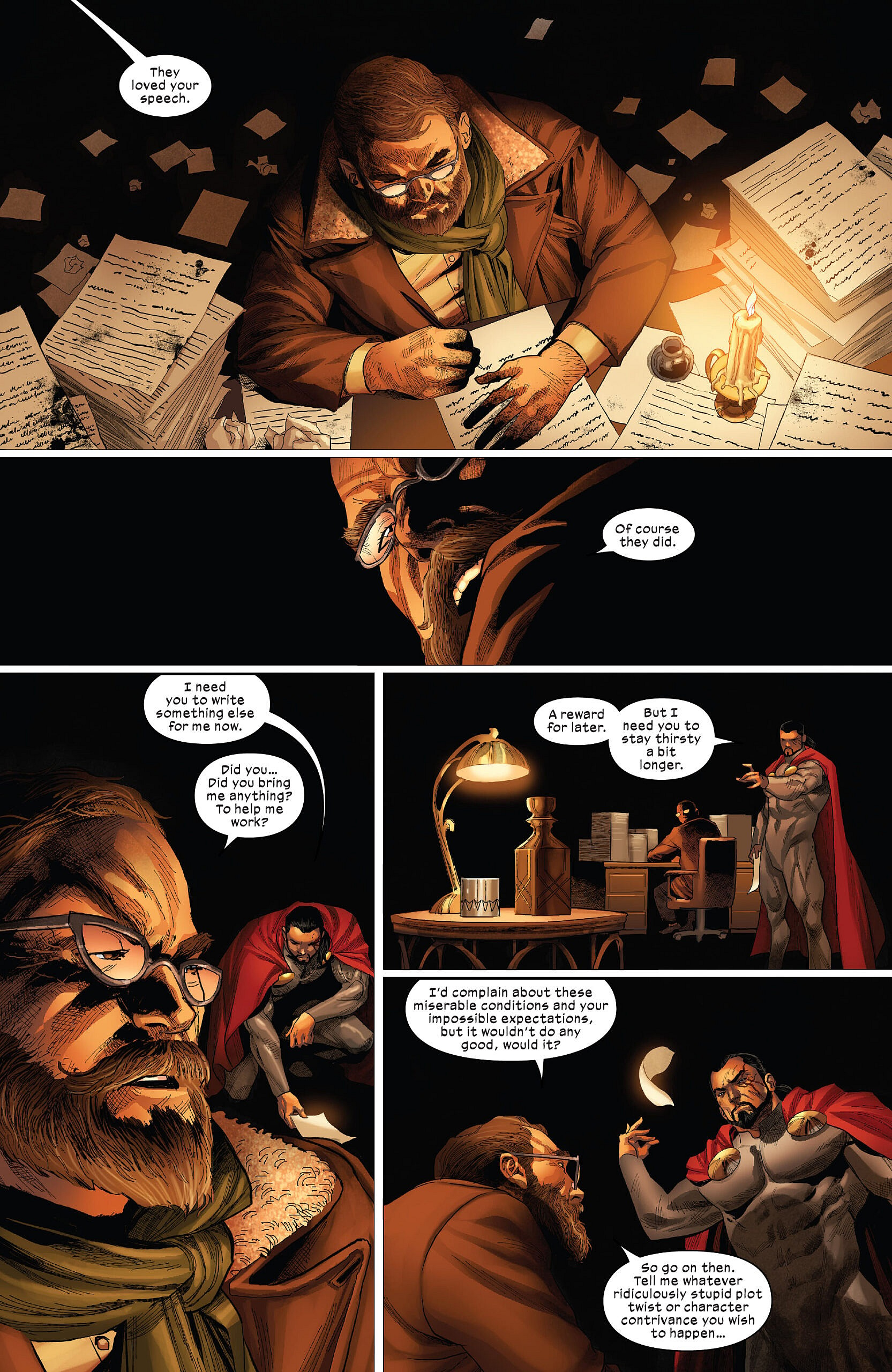
RELATED: Latest James Bond Novel Makes It Abundantly Clear The Villains Are White Men Who Oppose Wokeness
This information was first brought to public attention by UK news outlet The Telegraph, whose investigation into the matter identified four publishing houses whose public facing materials promoted this rhetoric.
One such publisher was Ash Literary, the children’s book specialists perhaps best known for producing the Marv series, who on the ‘Submissions‘ section of their official website inform prospective writers that “We are actively seeking voices that have historically been underrepresented, particularly with tropes that are often said to be ‘over done’.”
“For example, we are not interested in stories about white able bodied WW2 evacuees but would welcome that story from a disabled, LGBTQ+ or BIPOC perspective,” they add. “If your book is about an identity that is not yours, we will not be a good fit. This includes books based the experiences of family members and friends.”
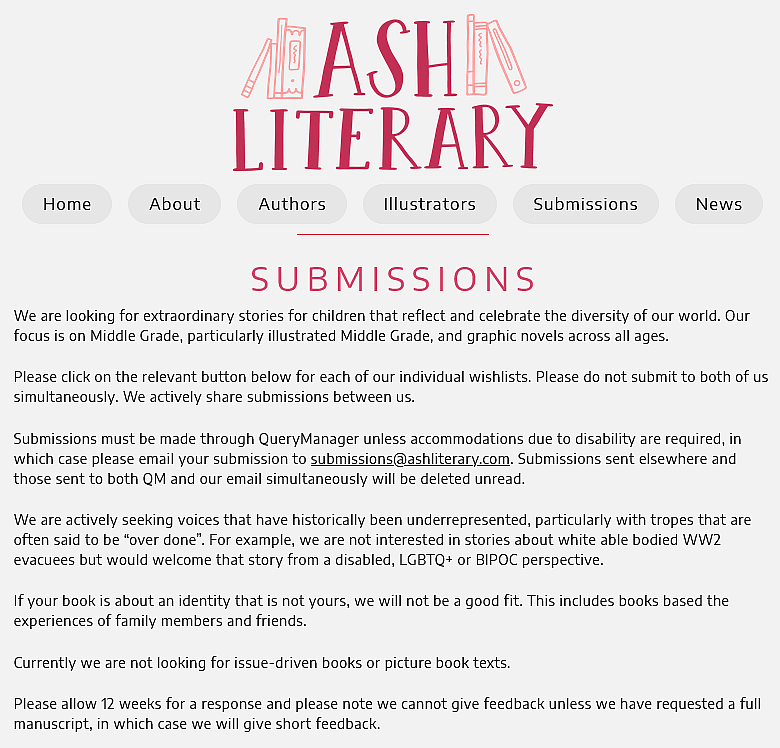
Another was The Good Literary Agency, a self-described “social enterprise literary agency dedicated to increasing opportunities for representation for all writers under-represented in mainstream publishing including writers of colour, disability, LGBTQ+, working class and anyone else who feels like their story isn’t being told in mainstream publishing.”
According to their own FAQ, “A stipulation of the public funding we receive [from the Arts Council England] states that we can only represent writers who are British Citizens or UK Residents who also self-identify in one of the following ways: writers of colour, working class writers, LGBTQ+ writers, and writers with a disability,” though said rules do allow for the publisher to “accept submissions from writers who believe that they are under-represented in publishing, however we do request that the writer provides their reasons for this when submitting their work.”
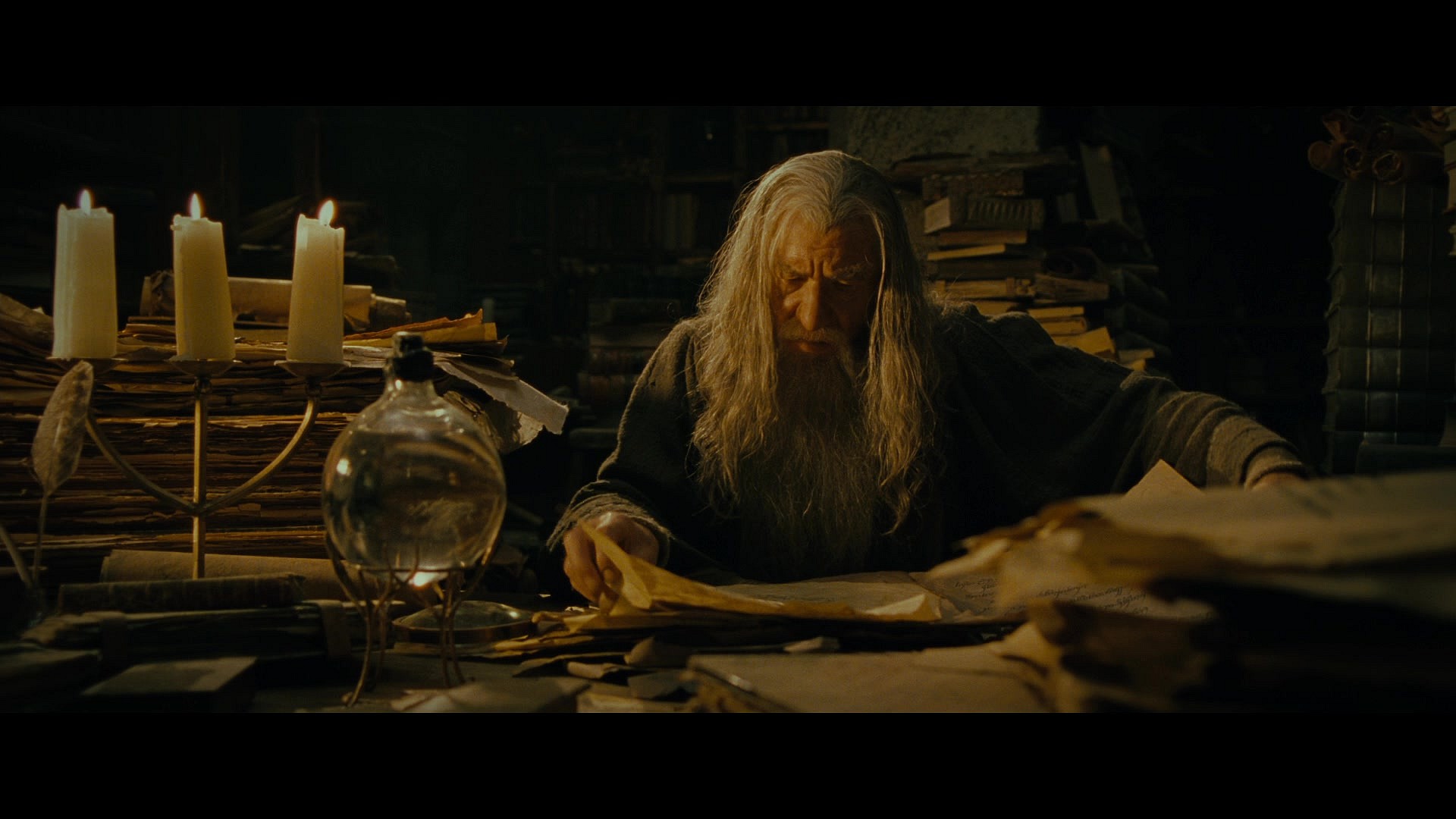
“This can include but is not limited to Care experienced people, Adoptees, Those with carer status, Writers who are 60+ in age, Refugees and asylum, Those who have experienced homelessness, Abuse and trauma survivors Those with long term illnesses, [and] those who have experienced incarceration,” they explain.
To this end, the publisher further notes that “The main focus of TGLA is to represent writers who are under-represented in mainstream publishing. Eligibility is based on the author, not the material or subject matter of the work they are submitting. Unfortunately, if you yourself are not eligible by the criteria listed in the first question above, we will be unable to proceed with your submission.”
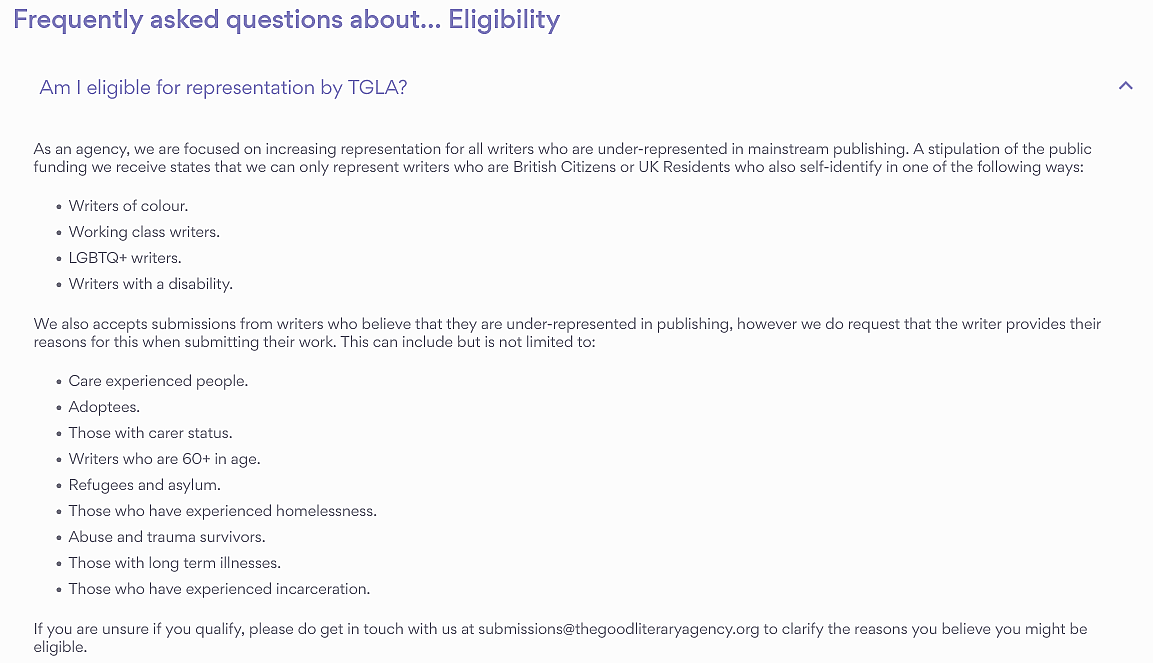
RELATED EXCLUSIVE: Get Your First Look At Chuck Dixon’s Second Conan The Barbarian Novel ‘Caravan Of The Damned’
Though not an official statement from the publisher of both the novelization of Marvel Comics’ Original Sin and House of Cards author Michael Dobbs’ entire bibliography, Bell Lomax Moreton agent Julie Gourinchas explicitly notes on her official company profile that she is “keenly interested in hearing from authors traditionally underrepresented in the industry, including but not restricted to writers of colour; queer, trans, and nonbinary writers; working class writers; disabled writers.”
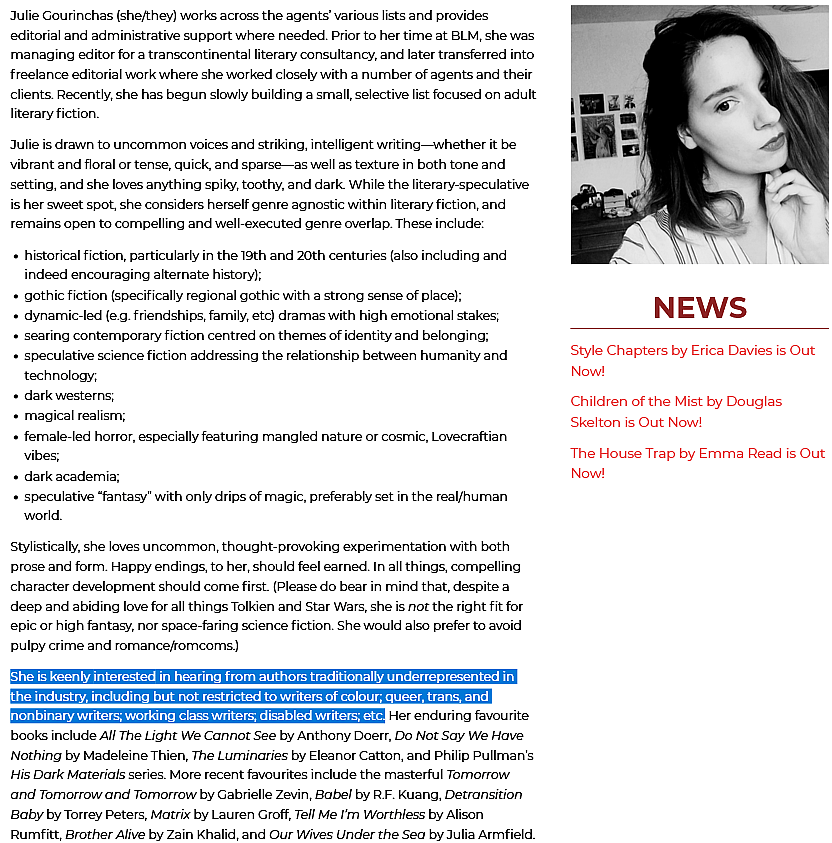
Likewise, per an archive found on her public facing account on the literary world-centric Twitter alternative Manuscript Wishlist, July 17th saw Pérez Literary & Entertainment Ltd. associate agent Nina Leon inform her Twitter followers in a now-deleted tweet that “BIPOC, queer, and minority groups are always the most welcome.”
“My inbox is a safe place,” she further assured prospective clients. “Please share your beautiful stories with me.”
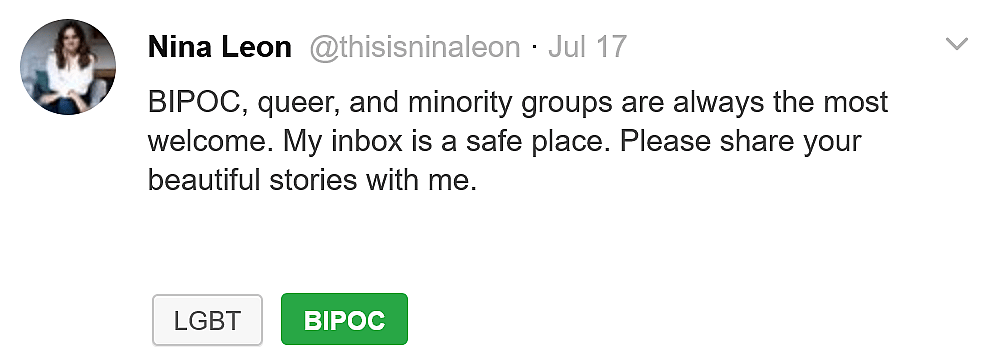
As of writing, none of the aforementioned parties have publicly commented on The Telegraph’s story, with Ash Literary and The Good Literary Agency both having notably declined the outlet’s relevant inquiries.
